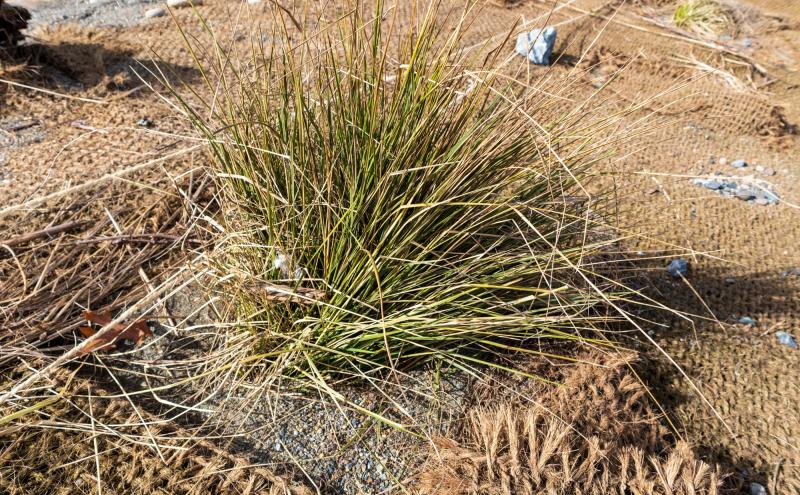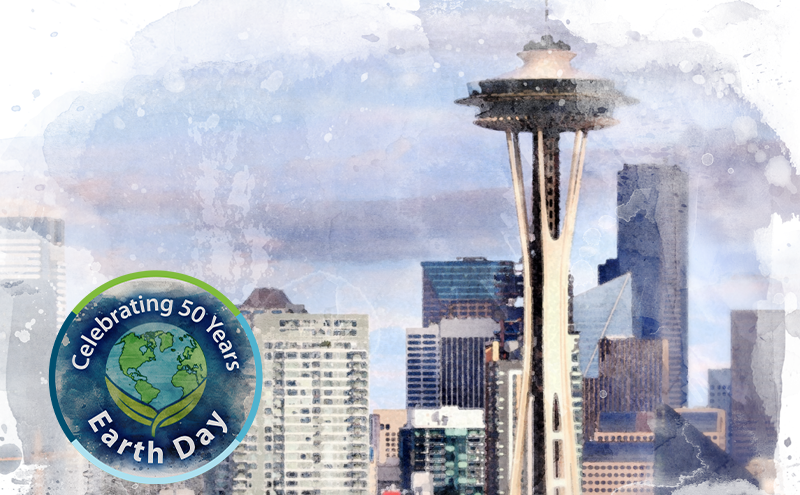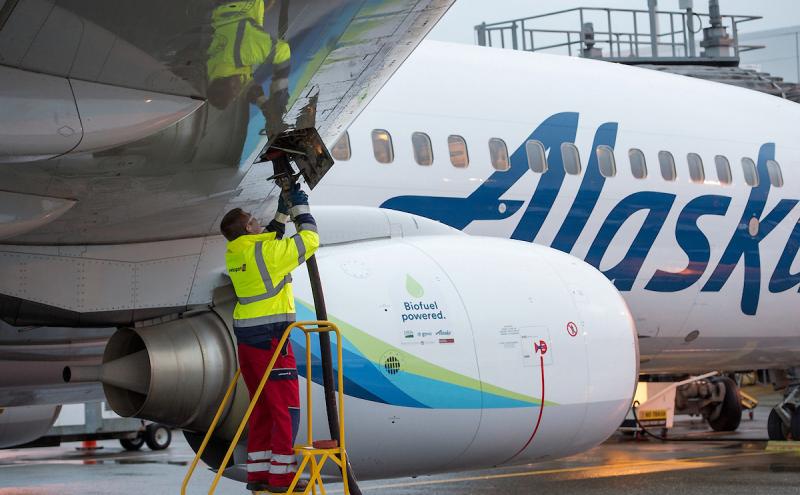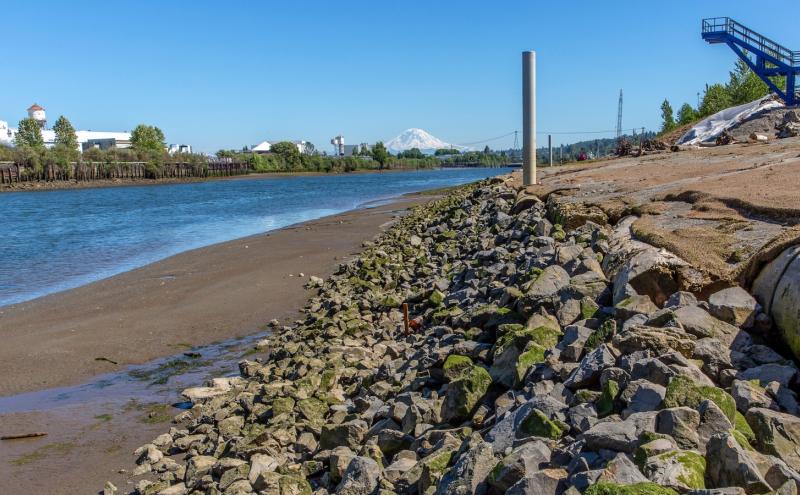
Providing essential services for people while protecting the planet is part of our DNA at the Port of Seattle. The health of the region and its impact on local communities endures as one of the highest priorities for the Port. Instead of just talking about it in 2022, we made big investments into restoring and preserving natural habitats, reducing greenhouse gas (GHG) emissions, piloting stormwater management practices, limiting noise impacts, growing community and industry partnerships, and much more. While it’s hard to pick the most significant work, we’re especially excited to see the impact of 2022’s successes in the year ahead — which is sure to be another year of complex problem-solving, innovative thinking, and community-centered work. And to that we say “bring it on!”

1. Restored the largest habitat in the Lower Duwamish River in a generation.
The Duwamish River is an important and active fishing zone for Indigenous peoples and is an important estuary for native aquatic and natural resources. Generations of industry contamination left the area an EPA Superfund site. After two decades of cleanup and restoration work, the Port and our community partners opened the new Duwamish River People’s Park and Shoreline Habitat, a 14-acre public space and habitat site with over 3,000 linear feet of shoreline habitat. The new park, opened last summer, is a demonstration of developing sustainable shorelines in and around Seattle and provides a green space and connection to the Duwamish River for local residents.
2. Reduced SEA Airport Terminal emissions by half, eight years ahead of schedule.
As the first U.S. Airport to purchase renewable natural gas (generated from consumer waste from landfills) to heat the terminal, SEA Airport reduced Scope 3 GHG emissions by 50 %. In 2023, the maritime division is doing the same; the goal is to reduce maritime scope 1 and 2 emissions by almost half while we work on long-term solutions and building electrification.
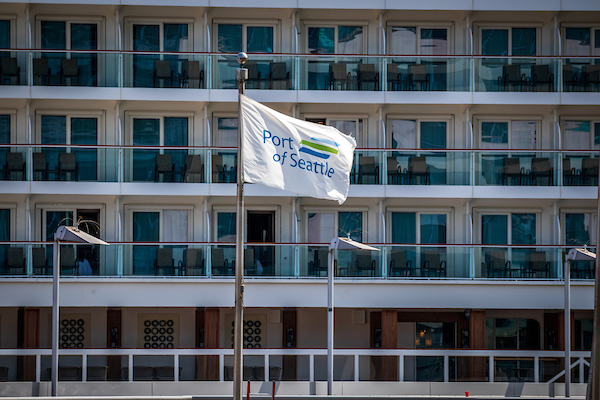
3. Launched the first green corridor for cruise ships to catalyze maritime decarbonization.
A green corridor is a shipping route where solutions that issue zero greenhouse gasses are considered, demonstrated, and supported. The Port of Seattle, along with 14 industry partners, is bringing that idea to cruise. In May, the Port and these partners launched a collaborative effort to explore the feasibility of a maritime green corridor aimed at accelerating the deployment of zero greenhouse gas (GHG) emission ships and operations between Alaska, British Columbia, and Washington:
- the City and Borough of Juneau
- Vancouver (B.C.) Fraser Port Authority
- Carnival Corporation
- Norwegian Cruise Line Holdings
- Royal Caribbean Group
- Cruise Lines International Association (CLIA)
- the Global Maritime Forum
- Blue Sky Maritime Coalition
- Washington Maritime Blue
This builds on the Port’s portfolio of ambitious ideas to address our climate urgency, accelerate environmental justice for communities near Port operations, and increase economic opportunities.
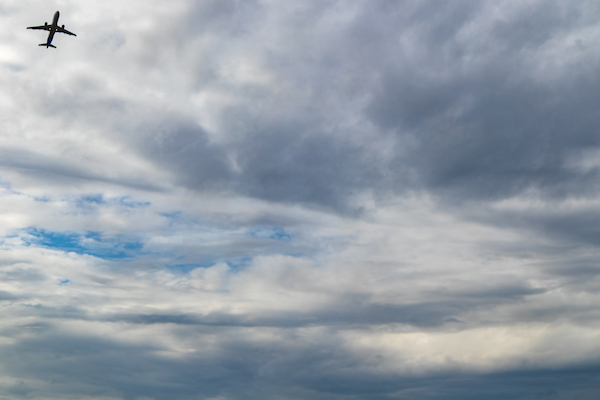
4. Launched a sustainable aviation fuel pilot program to reduce community air pollution.
In 2022, the Port of Seattle became the first United States airport operator to set a specific timetable and goals to transition all airlines at SEA to using commercially competitive sustainable aviation fuels (SAF). SAF is a jet fuel made from renewable sources such as used cooking oil, animal tallow, wood waste, algae, oil seeds, and municipal solid waste. Using SAF reduces carbon dioxide emissions by 50 to 80% compared to fossil fuel. Last year, we secured funding for a SAF pilot that will help produce cleaner air at SEA Airport and in surrounding communities.

5. Strengthened and grew community partnerships.
Community partnerships remain a critical component of the Port’s work — from ideation and planning to execution and completion — community matters. The Port is committed to leading equitable outcomes for all communities through policies and practices that ensure racial, social, economic, and environmental justice. This past year, our work with local communities resulted in posting fish advisory signs on Port properties and parks on the Lower Duwamish, provided feedback and input on Port projects, and supported tree planting and habitat restoration activities, to name just a few. For current Port events, check out our events calendar — we’d love to see you at any event in 2023!

